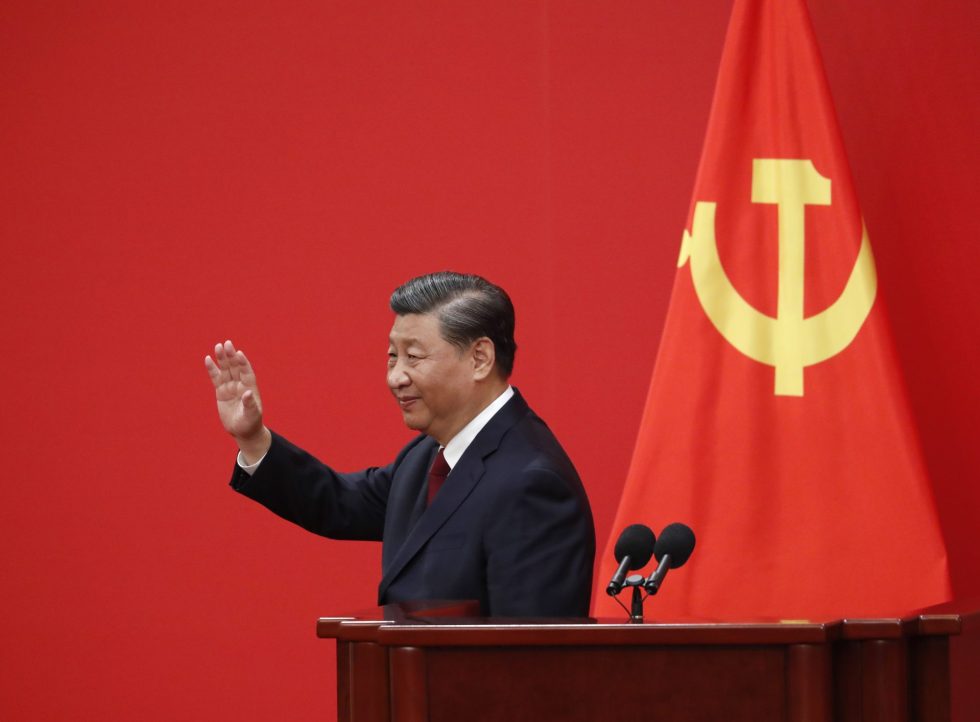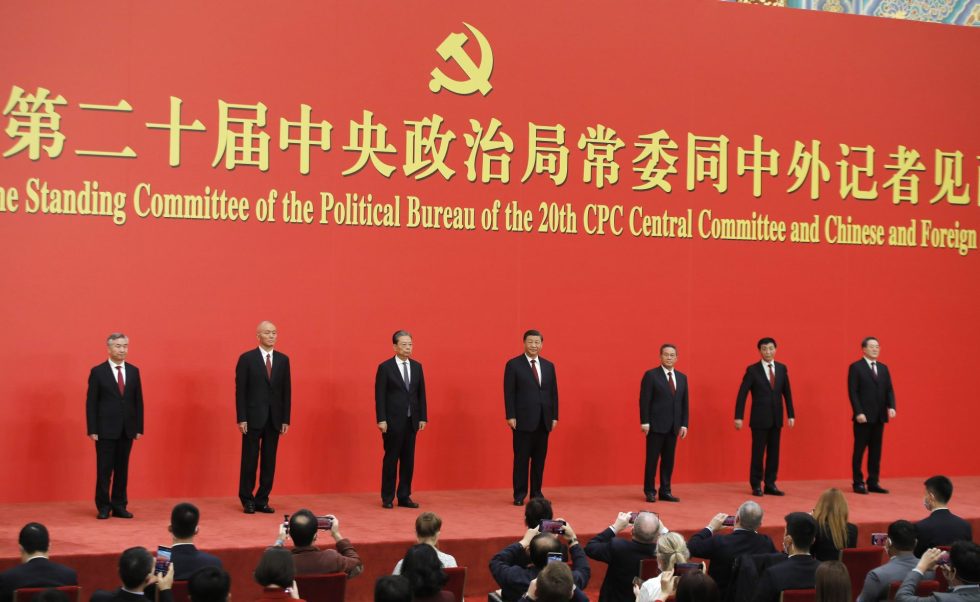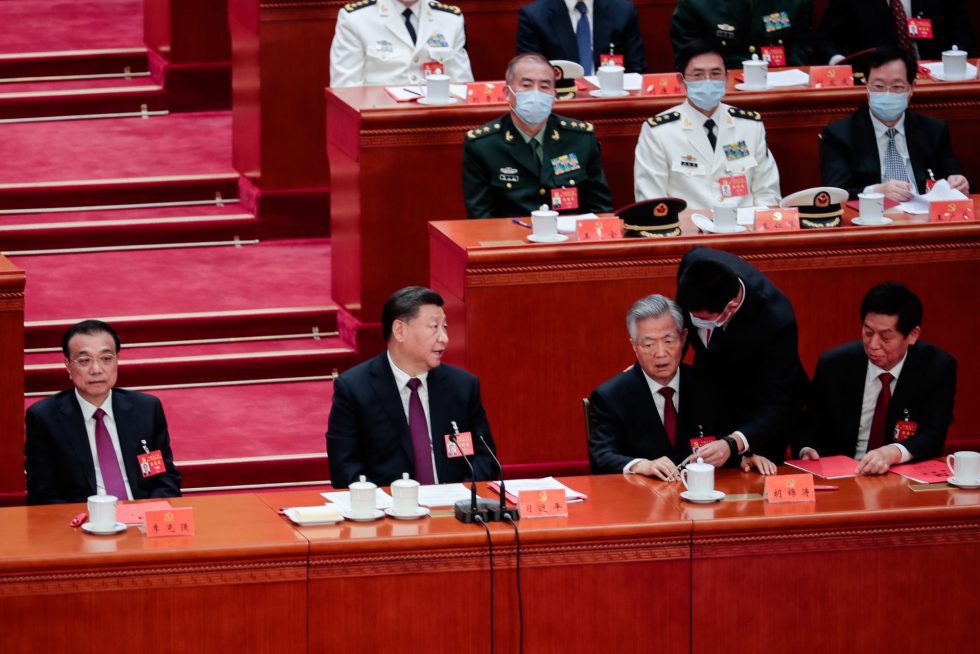Jesus Rye |
Beijing, (EFE). The concentration of power in China around the figure of Xi Jinping, who was re-elected yesterday as General Secretary of the Communist Party (PCCh), heralds greater social control, assertiveness against the West and a precarious commitment to the technological self – efficiency experts predict.
Xi enforced his law during the 20th Communist Party of China Congress that concluded this weekend, personally choosing his followers to take over the new leadership of the formation, thus complete domination of the system for a third five-year term without any internal faction that could overwhelm or control his regime. decisions.
“The formation of his new group shows that Xi is dominant and that he has succeeded in consolidating his power even further. All members of this leadership have worked with him previously and are closely related to his personality,” explains researcher Yu Jie, from Chatham House think-tank in London.
Xi’s goal: for his new team to promote what he called yesterday an “intra-party revolution” that would make him “indomitable in the face of all challenges”, from “sobriety and perseverance”, to reaching “China’s modernization”. .

Analysts see in his recent speeches highly ideological statements that prioritize concepts such as national security, unity and self-sufficiency to counter what are considered external attacks, such as Washington’s recent veto of US chip makers for Chinese companies, which would have a purpose. To isolate the Asian giant.
“Some of the new Politburo members (24 people) have solid experience in managing key state-owned enterprises and strategic industries. Many of them have a PhD in Science. This new team is tasked with promoting self-reliance to ensure national security.”
absolute power
The The new standing committee The leadership of the Chinese Communist Party was appointed yesterday, and it will also have the task of revitalizing the economy, which is essential to the legitimacy of the regime, which is why Xi chose to raise Li Qiang to the second place on his ladder, who took over the reins of government. The country’s largest business magnate, Shanghai.
Lee aims to become prime minister in March despite being unable to stop in time – by Chinese standards – the flood of virus cases in major cities last spring, which led to a harsh confinement of nearly three months.
In the appointment, experts say, they were weighing his obedience in following orders and imposing endless quarantines, his skills with the business community, and above all his personal friendship with Xi.

That is, being tough would be one of the formation’s great principles to avoid corruption or opposition that could light a fuse of more general discontent, something that Xi himself emphasized when he called for “unity” and “strict rule”.
“This means that there is no dissenting voice from his character,” sums up expert Dominique Meijer, of the Australian think tank John Curtin.
The Chinese leader also emphasized that “glory is when adversity is overcome,” a prediction according to analysts that curves are coming and PCCh will pull hard to maintain social control, which is his top priority.
‘functioning democracy’
During his speeches this week, the president spoke of and responded to “global challenges” by promoting “the common values of all mankind” at a time of extreme ideological confrontation, with Beijing asserting that its socialist system is also a “democracy.” This works”, even better than Western countries, which consider it to be in decline.

“If we all work together, we can live in harmony,” Xi said, which Major interprets as a message that “if the world wants peace, it will have to comply,” something that would make the country unlikely to ease up. confrontation. Which he confirms in recent years against everyone who opposes his speech.
The Taiwan crisis was also present at the secret meeting and a resolution was included in the party statute to “reject” a possible declaration of island independence and “oppose separatists and those who launch crude provocations from abroad”.
In the economic and social sphere, Xi wanted to calm the atmosphere by ensuring the viability of the “reform and opening-up” process through which China has developed since the 1980s, and promised “opportunities for all” because “China cannot develop without the world, and the world needs China.”
However, experts do not predict liberal prescriptions, but rather self-sufficiency, Marxism and nationalism to reduce the imbalances and inequalities that still characterize the Chinese model.
At the moment, stock markets do not seem to have greeted the outcome of the Congress with optimism, and the benchmark index of the Hong Kong Stock Exchange, Hang Seng, lost 6.4% today, even below the level of some trading days. Late 2008, a time when global markets were collapsing with the outbreak of the global financial crisis.
Web Editing: Nuria Santisteban

“Unapologetic tv specialist. Hardcore zombie trailblazer. Infuriatingly humble problem solver.”
